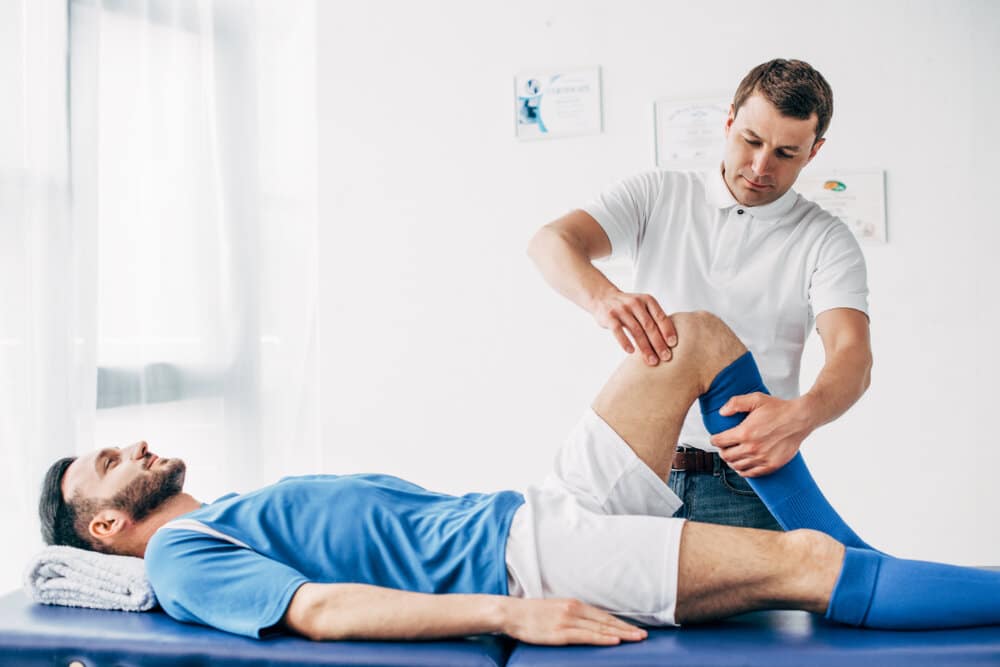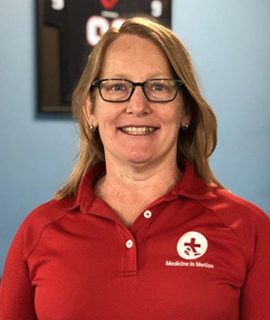Defining the Role of a Sports Medicine Doctor
A sports medicine doctor is a specialized physician with a laser focus on the prevention, diagnosis, and treatment of injuries related to sports and exercise. Their expert knowledge extends to understanding the impact of exercise on the human body, including high-level athletes and individuals who are physically active.

Distinguishing a Sports Medicine Doctor from Other Physicians
Unlike other types of doctors, sports medicine doctors possess a unique set of skills honed to address sports-related injuries. They are trained to understand the complexities of high-level physical performance and are equipped to restore function to injured patients so they can get moving again. Additionally, they work in collaboration with physical therapists and orthopedic surgeons to ensure comprehensive care.

To understand more about sports medicine, you can refer to the official page of the American College of Sports Medicine.
Who Should Seek the Services of a Sports Medicine Doctor?
Sports medicine doctors cater to a diverse range of individuals, from professional athletes to fitness enthusiasts. Here are some examples of individuals who can benefit from their expertise:
- Professional Athletes: These individuals often push their bodies to the limit, making them susceptible to injuries. A sports medicine doctor can provide them with specialized care tailored to their unique needs.
- Highly Motivated Amateurs: Whether they’re aiming for better strength, fitness, mobility, or recovering from an injury, these individuals can benefit from the expertise of a sports medicine doctor to achieve their goals safely and effectively.
- Older Athletes: As the body ages, it becomes more prone to injuries and wear and tear. Older athletes can benefit from the preventive measures, treatments, and guidance provided by sports medicine doctors. This can help them continue their athletic pursuits while minimizing the risk of injuries and complications.
- Athletes at Higher Risk of Concussion: Athletes involved in contact sports such as football, hockey, boxing, and rugby are at a heightened risk of concussion injuries. It’s crucial for these athletes to have regular check-ups with sports medicine doctors who can provide guidance on concussion prevention, early detection, and proper management.
Regardless of their level of athleticism or age, anyone who is physically active can benefit from the expertise of a sports medicine doctor to ensure they’re moving in a way that’s safe and beneficial for their body.
Educational and Training Requirements for Becoming a Sports Medicine Doctor
Embarking on the journey to becoming a sports medicine doctor involves a rigorous and rewarding educational and training pathway. It begins with an undergraduate degree, typically in a science-related field such as biology or chemistry. This is followed by four years in medical school, where students gain a solid foundation in general medicine.
After obtaining their medical degree, aspiring sports medicine doctors embark on a specialized training and residency program. This usually entails 3-5 years of residency in family medicine, internal medicine, or orthopedics, followed by a 1-2 year fellowship in sports medicine. Here, they receive hands-on training dealing with sports injuries and learn how to promote wellness among athletes and physically active individuals.
Moreover, continuing education is crucial in this field to keep up-to-date with the latest advancements and techniques in sports medicine.
Sports Medicine Specializations
In the realm of sports medicine, physicians often choose to specialize in certain areas to provide in-depth care. Among the various specializations, orthopedic surgery and physical therapy are two of the most popular.
Orthopedic surgery focuses more on the surgical intervention of injuries, primarily those involving the musculoskeletal system. Dr. James Andrews, a renowned orthopedic surgeon, has made significant contributions to this field, including pioneering arthroscopic surgery techniques.

On the other hand, physical therapy emphasizes rehabilitation and non-surgical treatment. Dr. George Davies, a well-known physical therapist, has been influential in developing and advocating for evidence-based practice in physical therapy.

Medical Specialists with a sporting focus

Typical Duties and Responsibilities of a Sports Medicine Doctor
A sports medicine doctor plays a crucial role in maintaining the health and performance of athletes. Their daily duties include the diagnosis of injuries, formulation of treatment plans, and regular patient follow-up. With a comprehensive knowledge of sports-related injuries, they have the ability to diagnose conditions accurately and provide effective treatment strategies.
The Role of Sports Medicine Doctors in Preventive Care and Education
Preventive care is another significant responsibility of sports medicine doctors. By leveraging their profound understanding of an athlete’s body, they can implement preventive measures to reduce injury risk. This involves prescribing appropriate exercise regimes and advising on nutritional needs.
Education is also a fundamental part of their role. They educate athletes on injury prevention, proper training techniques, and overall wellness. This not only helps to prevent injuries but also empowers athletes to maintain optimal health.

In conclusion, the role of sports medicine doctors extends beyond treatment to include preventive care and education, thus ensuring the overall well-being of athletes.
The Integral Role of a Sports Medicine Doctor Within a Sports Team
A sports medicine doctor is a crucial member of a sports team, working in tandem with athletes, trainers, and coaches. This medical professional has the responsibility of assessing and treating sports-related injuries and illnesses while advising on injury prevention and performance enhancement.
One of the key duties of a sports medicine doctor is to decide when an athlete can safely return to play post-injury. This involves a comprehensive analysis of the athlete’s rehabilitation progress, the nature and severity of the injury, and the potential risks associated with premature return.

Making Return-to-Play Decisions
Return-to-play decisions are not taken lightly. They require a delicate balance between the athlete’s eagerness to return and the doctor’s medical judgment. The doctor must consider the athlete’s overall health, the potential for re-injury, and the specific demands of the sport. These decisions, while complex, are crucial in ensuring the athlete’s long-term health and career longevity.

Innovations in Sports Medicine
Over the past few years, the field of sports medicine has been revolutionized by a myriad of technological advancements and cutting-edge research. As an arena that is always at the forefront of medical innovation, sports medicine continues to push boundaries and redefine the possibilities of injury prevention, diagnosis, and treatment.
These advancements encompass a wide range of tools and techniques— from 3D biomechanical analysis to precision medicine. Such innovations have dramatically altered how sports medicine doctors operate, enabling them to provide more personalized, effective, and targeted care to their patients.
Impact on Sports Medicine Doctors
The integration of these technologies into the practice of sports medicine has empowered doctors to not only detect and treat injuries with unprecedented accuracy, but also to anticipate potential health issues before they become problematic. This predictive capability is a game-changer, as it allows athletes to proactively address potential risks and optimize their performance.
These innovations are just the beginning. As technology continues to advance, sports medicine doctors will undoubtedly continue to leverage these tools to push the boundaries of athletic performance and healthcare.
In conclusion, if you’re an athlete or someone who leads an active lifestyle, considering the services of a sports medicine doctor can be a game-changer. Their specialized knowledge and holistic approach ensure that you receive the best care possible, keeping you at the top of your game. We highly recommend reaching out to Medicine in Motion to schedule an appointment. By doing so, you can discover firsthand how consulting with a sports medicine doctor can provide personalized benefits tailored to your unique needs and aspirations.

Dr. Martha Pyron is a recognized sports medicine physician and the founder of Medicine in Motion, an Austin-based practice specializing in comprehensive medical care for active individuals and athletes. An active contributor to her field, she uses her extensive experience as a former collegiate athlete to aid her patients and develop innovative care strategies. Beyond her clinical practice, Dr. Pyron is known for her involvement in the local athletic community and her commitment to promoting health and fitness.



